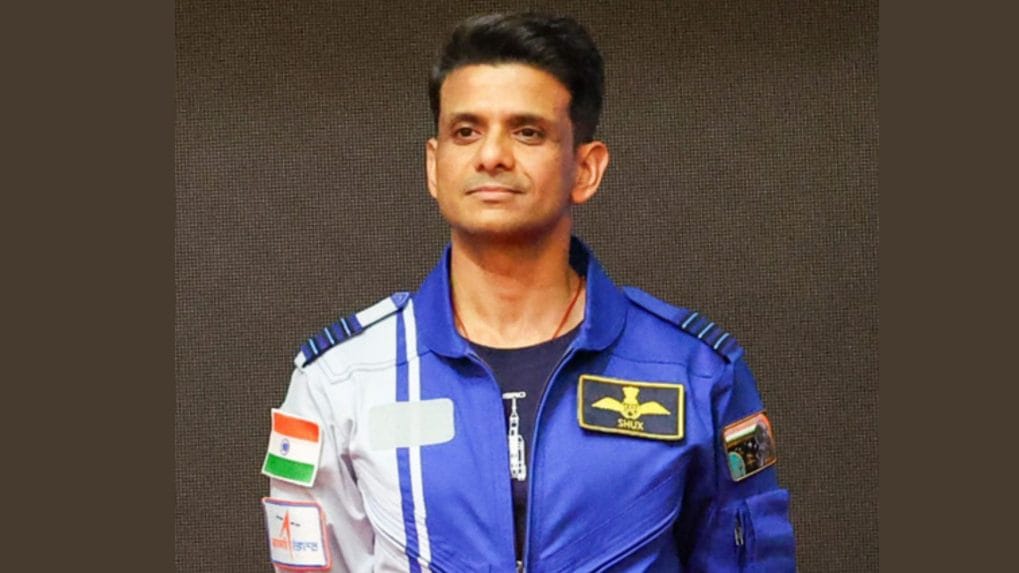'Earth looks completely one, no border exists': Shubhanshu Shukla's quote features in new NCERT book
The excerpt is taken from Shukla's conversation with Prime Minister Narendra Modi following his space mission, and aims to inspire young students to think beyond geographical divides and embrace unity and environmental consciousness.
ADVERTISEMENT
Shubhanshu Shukla, the first Indian to reach the International Space Station (ISS), is now immortalised in school textbooks, according to a PTI report.
The NCERT's newly released Class 5 Environmental Studies (EVS) textbook, Our Wondrous World, features a moving quote from the Indian astronaut reflecting on Earth's oneness, as seen from space.
Also Read: “Historic moment for India”: PM Modi welcomes Astronaut Shubhanshu Shukla back to Earth
“After seeing Earth from outside, the first thought that came to mind was that Earth looks completely one; no border is visible from outside. It seems that no border exists, no state exists, no countries exist. We all are part of humanity, and the Earth is our one home, and all of us are in it,” reads the quote attributed to Group Captain Shukla under the chapter titled Earth, Our Shared Home.
The excerpt is taken from Shukla's conversation with Prime Minister Narendra Modi following his space mission, and aims to inspire young students to think beyond geographical divides and embrace unity and environmental consciousness.
Shukla, a 39-year-old Indian Air Force officer and test pilot, made history when he became the first Indian to board the ISS on July 15 after an 18-day journey as part of the Axiom-4 mission. The mission was a joint effort between commercial spaceflight company Axiom Space and supported by ISRO and NASA.
He is the only second Indian to enter space - following Rakesh Sharma's groundbreaking 1984 mission - and the first to step aboard the ISS.
Also Read: Etihad issues safety alert on Boeing 787 fuel switches post Air-India AI 171 crash
Born on October 10, 1985, in Lucknow, just a year after Sharma’s mission, Shukla had no direct family connection to aviation or space. A visit to an airshow during his childhood sparked his dream. That dream finally took flight on June 25, when he launched from NASA’s Kennedy Space Center aboard a SpaceX Crew Dragon spacecraft. Moments after entering orbit, Shukla famously said in Hindi, “Kamaal ki ride thi” (“It was a great ride”), capturing both his excitement and national pride.
The Class 5 textbook, developed in line with the National Education Policy (NEP) 2020, is part of The World Around Us series. It adopts an integrated approach to teaching science, social studies, and environmental awareness through storytelling and real-world examples.
Apart from Shukla’s reflections, the book introduces students to emerging technologies like DIGIPIN, a digital address system for precise geolocation, and includes lessons on microbial life, flood preparedness, food preservation, and oral health.
Also Read: Aviation regulatory body assures curb on 'arbitrary' airfare hikes


